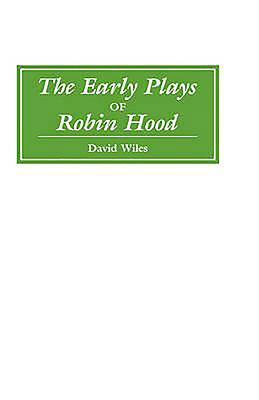
- Afhalen na 1 uur in een winkel met voorraad
- Gratis thuislevering in België vanaf € 30
- Ruim aanbod met 7 miljoen producten
- Afhalen na 1 uur in een winkel met voorraad
- Gratis thuislevering in België vanaf € 30
- Ruim aanbod met 7 miljoen producten
Zoeken
Omschrijving
Robin Hood was the subject of many fifteenth and sixteenth century folk-plays, of which only traces remain. As a result, the ballads, many of which have survived, have usually been regarded as the main-spring of traditions about the famous outlaw. David Wiles however, argues that the dramatic tradition was equally, if not more, important. He sees the plays, associated with Whitsun revels, died out much earlier, and so must be reconstructed from fragmentary scripts and the tantalising glimpses afforded by sources such as churchwardens' accounts. Robin Hood emerges as an emblem both of the Spring and of rebellion; as a Summer king, the player of Robin Hood flouted and parodied regular authority. With such a background, the plays ceased to be an acceptable part of parish life after the Reformation, and the games were suppressed, while the myth of RObin Hood was manipulated and made respectable.
Specificaties
Betrokkenen
- Auteur(s):
- Uitgeverij:
Inhoud
- Aantal bladzijden:
- 103
- Taal:
- Engels
Eigenschappen
- Productcode (EAN):
- 9780859910828
- Uitvoering:
- Hardcover
- Formaat:
- Genaaid
- Afmetingen:
- 140 mm x 216 mm
- Gewicht:
- 285 g

Alleen bij Standaard Boekhandel
+ 354 punten op je klantenkaart van Standaard Boekhandel
Beoordelingen
We publiceren alleen reviews die voldoen aan de voorwaarden voor reviews. Bekijk onze voorwaarden voor reviews.








